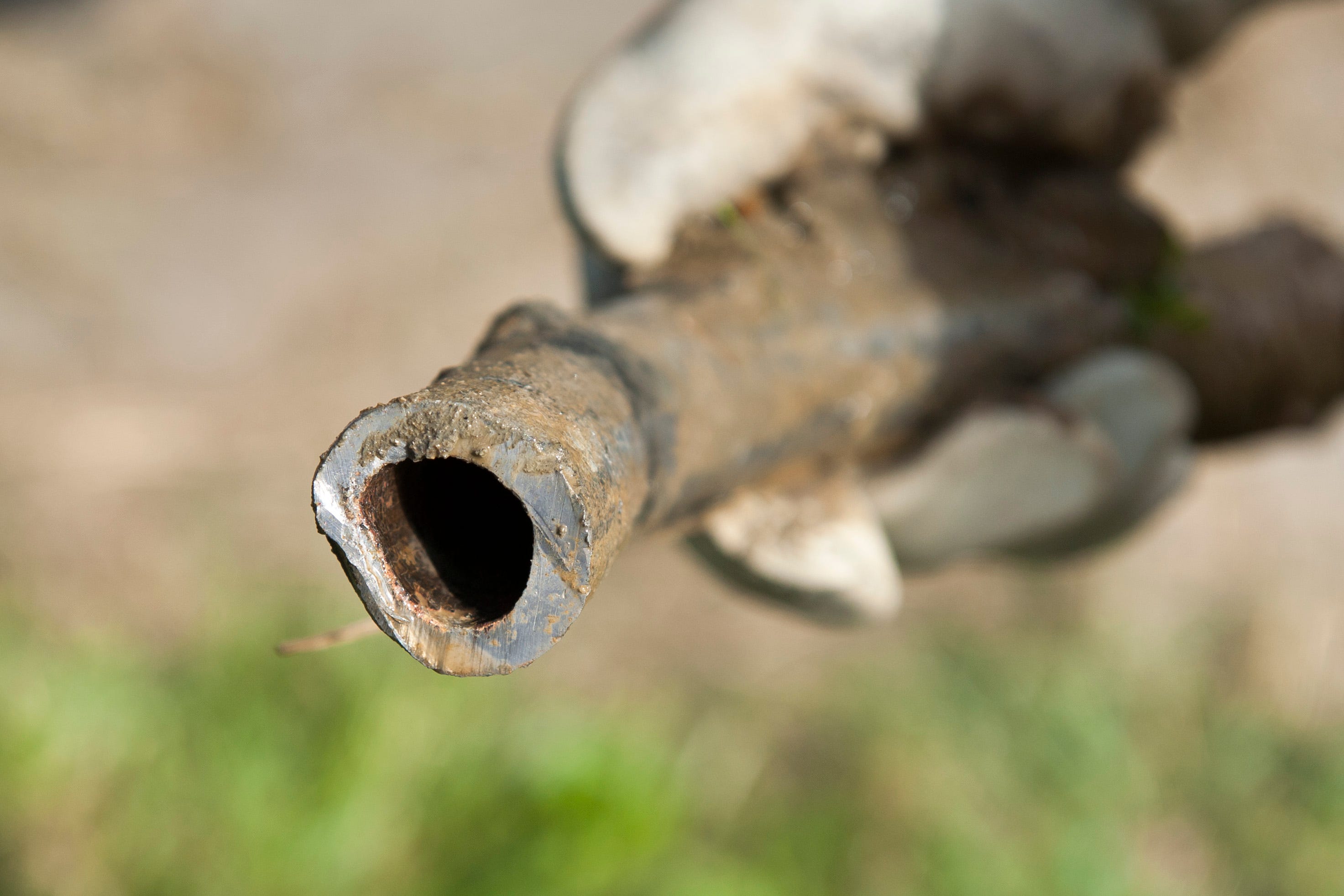Flint: Water line replacement won't be done till 2019
 Leonard N. Fleming
Leonard N. Fleming
Flint has identified about 18,300 lead or galvanized steel water lines and has replaced nearly 7,000 of them, city officials announced Tuesday.
The city hopes to complete replacement of all service lines that could contribute to lead contamination of the city's water by the end of 2019, Mayor Karen Weaver announced at a press conference in Flint on Tuesday.
The Detroit News erroneously reported Tuesday that Flint officials planned to announce the completion of lead service line replacement at the press conference. In fact, they announced the completion of excavations that identify the type of service lines that carries water from the water system to individual homes.
State environmental regulators acknowledge there's more work to be done.
"While the DEQ recognizes all of the local and state efforts toward replacement of service lines within the community, more work on lead and galvanized steel service line replacements will continue throughout 2019 with a goal of ensuring lead in the drinking water continues to be maintained under the federal action level," Scott Dean, communication director at the Michigan Department of Environmental Quality.
The announcement came in the midst of a controversy over whether the city is doing enough to identify troublesome lines. The Natural Resources Defense Council is accusing Flint of not focusing enough on hazardous pipes likely still in the ground.
A legal settlement with the Concerned Pastors for Social Action requires the city to target excavations at homes most likely to have hazardous lead and steel pipes. More than 80 percent of Flint's excavation this year were at homes with copper pipes, according to the NRDC.
"University of Michigan experts ... conclude that thousands of hazardous pipes likely remain in the ground," according to the group's statement.
But Flint officials maintain that 90 percent of the more than 13,000 water lines remaining to be excavated are copper and may not need replacement, according to an August memorandum from Flint FAST Start Deputy Program Manager Ed Tharp to the state. He estimated the remaining number of lead service lines at that time at about 1,320 lines.
Flint's lines were weakened by river water that wasn't treated with anti-corrosion chemicals following Flint's water source switch in 2014, while city government was under state oversight.
The city has 28,400 water service lines, according to a Flint memo, but not all are considered hazardous.
In a statement to The Detroit News on Monday, Weaver highlighted the city's efforts to excavate and check 18,313 galvanized or lead pipes connected to 7,707 homes through Nov. 30. Weaver's FAST START project began in 2016 and was first anticipated to be finished in late 2019.
Weaver has been fighting a DEQ directive to sign a state consent order requiring fixes to Flint's water system.
While the city's water lead test results have been below federal action standards for more than two years, an August 2017 state sanitary survey that found the city’s water system had “significant deficiencies,” including ones related to water distribution, security, finances, and operations and management.
Weaver has resisted signing the order, saying some of the issues already were fixed. She appears to have held off the state long enough to deal with Democratic Gov.-elect Gretchen Whitmer, whom the mayor endorsed in the gubernatorial election and considers friendlier to the city's plight.
The U.S. Environmental Protect Agency sided with the state over the request Flint repairs, saying the DEQ has "primacy agency authority” to issue a consent order and that Flint missed the deadline to address its infrastructure problems.
lfleming@detroitnews.com
(313) 222-2620
Twitter:@leonardnfleming